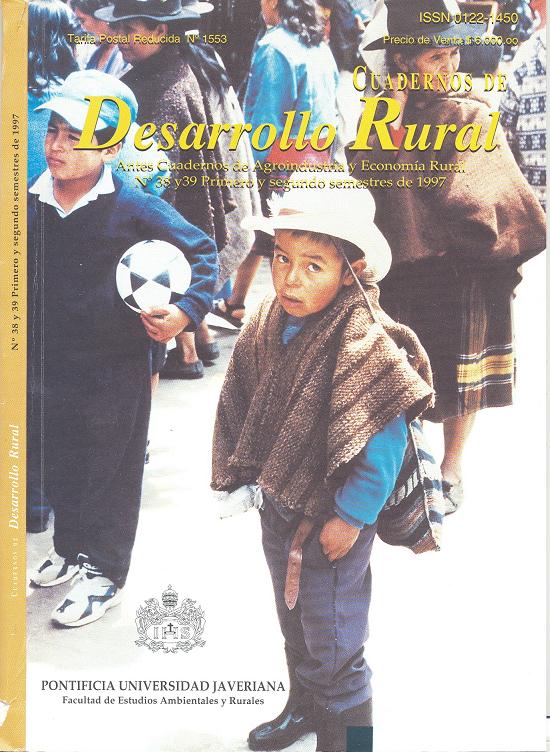Abstract
El ténnino agricultura familiar comprende los mediosde producción que pertenecen a la familia y tambiénincluye la administración. organización y el trabajo.agrícola llevado a cabo por la misma. En Argentina, el80% de las empresas agrícolas y ganaderas productivasregistradas en el Censo Agrícola y Ganadero estánconstituidas por organizaciones familiares. Sin embargo,existe una heterogeneidad real y de profundoarraigo a tales medios productivos, ya que, mientrasen la región de las pampas los cereales y carne seproducen para la exportación. con el apoyo de trabajadoresasalariados, las regiones del noroeste y noresteproducen, generalmente, materias primasagroindustriales o están dedicadas a la cría de animalespequeños.Más allá de las diferencias existentes entre empresasagrícolas familiares con características que son principalmentede tipo rural y empresas agrícolas familiaresmás profesionales, este tipo de actor social haencontrado estrategias de supervivencia dentro de unmodelo económico que ha generado inestabilidadgeneral en la sociedad, debida. principalmente. a lafalta de empleos.Las empresas familiares con mayor flexibilidad en sussistemas productivos muestran ventajas comparativasque tienen que ver con los otros tipos de actividadagraria, a pesar del hecho que para muchas de ellas, lasubsistencia es la única alternativa realista dentro deuna situación caracterizada por la disminución delnúmero de empresas agropecuarias en el país.Cuadernos de Desarrollo Ruralis registered under a Creative Commons Attribution 4.0 International Public License. Thus, this work may be reproduced, distributed, and publicly shared in digital format, as long as the names of the authors and Pontificia Universidad Javeriana are acknowledged. Others are allowed to quote, adapt, transform, auto-archive, republish, and create based on this material, for any purpose (even commercial ones), provided the authorship is duly acknowledged, a link to the original work is provided, and it is specified if changes have been made. Pontificia Universidad Javeriana does not hold the rights of published works and the authors are solely responsible for the contents of their works; they keep the moral, intellectual, privacy, and publicity rights.
Approving the intervention of the work (review, copy-editing, translation, layout) and the following outreach, are granted through an use license and not through an assignment of rights. This means the journal and Pontificia Universidad Javeriana cannot be held responsible for any ethical malpractice by the authors. As a consequence of the protection granted by the use license, the journal is not required to publish recantations or modify information already published, unless the errata stems from the editorial management process. Publishing contents in this journal does not generate royalties for contributors.


